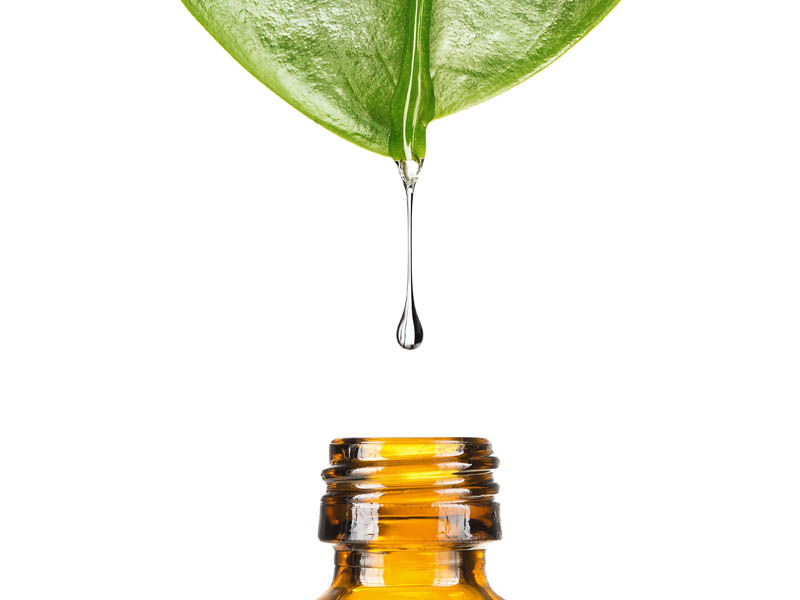As many consumers shift to more natural, holistic lifestyles, essential oils are gaining in popularity.
When we think of essential oils, we tend to think of aromatherapy. Aromatherapy incorporates essential oils – oils that are extracted from stems, seeds, bark and flowers of plants. These oils are designed to work in harmony with the body, with some of the more popular aromatherapies known for stimulating calmness and reducing stress.
Essential oils are used a variety of ways for a variety of purposes, though, not just aromatherapy.
“I use them for daily health and wellness,” says Missy Kerner, Wellness Advocate for the DoTerra Corporation which carries an extensive line of essential oils. Kerner is also the Director of Education at Body Balance Studio (a yoga center) in Williamsburg, Virginia. “The oils can be diffused aromatically, taken orally, and/or applied topically on skin.”
Essential oils are extracted from plants in natural ways. They may be distilled with steam and/or water, or mechanically pressed. Know what you are buying, though, because some so-called essential oils are made with chemical processes – those are not considered true essential oils.
DoTerra oils, which are certified pure therapeutic grade, are steam distilled. “With steam distillation, water is boiled and the steam passes through the plant material,” Kerner explains. “The steam carries the aromatic compounds from the plant into a collecting tube, where the steam is cooled and condensed back into water. Then, the oil is separated from the water. It’s a very pure oil.”
According to the National Institutes of Health, pure oils, by definition, have no additives or artificial ingredients, vital to the quality and effectiveness of the product. Still, because essential oils are not regulated by the FDA, it can be a challenging to discern their “purity.”
“If you are going to be using oils for the treatment of illness, or taking them internally, you want something very pure,” Kerner says. “These are different from the oils in lotions at discount stores, which might also include other manmade additives.”
How to Start Using Essential Oils
“You can use them all together, layering them for a variety of uses. Whether you diffuse them, apply them on your skin, or take them as supplements, they all have different constituents.”
Some of the stronger oils can be “cut” with a carrier oil like jojoba, grape seed oil or coconut oil. “This does not decrease the potency of the oils, it just decreases the time it takes to absorb them.” Newbies to essential oils often start with Lavender, an oil that has over 200 constituents in it – meaning that there are 200 things it can be used for.
“Lavender is an amazing oil and also one of the least expensive oils,” Missy says. For seasonal allergy sufferers, Lavender is also an effective antihistamine. In addition to Lavender, Peppermint oil helps ease congestion, while Lemon oil is a popular detox oil. “It pulls the toxin from your cells. Our toxic load is so great and we can’t always control the toxins in the air. So, I want to decrease toxins however I can.”
Peppermint oil is useful as a digestive aid as well. Perhaps the toothpaste makers have been onto something for a long while now, considering the appealing taste and soothing properties of peppermint.
“There is also a proprietary blend of oils that I diffuse all day during cold season,” Kerner says.
What About the Cost?
“When you consider that that I don’t spend money at the drugstore or on medical copays, they pay for themselves. Not to mention that I don’t miss time from work for being sick.” Kerner has not taken a prescription medicine – not even an Advil or aspirin – in over three years. What’s more, she has three children and says that not one has missed a sick day in over two years. As effective as they can be in terms of balancing things out in our bodies, Kerner encourages consumers to be aware of their own bodies. “Your body may react differently to different oils than mine.” It is important to consult your doctor if any symptoms worsen or do not get better while using a holistic approach.
Popular Essential Oils
Ginger: Helps eliminate pain, relieves nausea and calms the digestive system.
Lavender: Has a soothing effect on the body, calms the nerves and eliminates stress; eases the pain of headaches, helps soothe a burn or sting, and relaxes tense muscles.
Geranium: Can suppress the symptoms of PMS, eliminate body odor, and eliminate bloating. Geranium is also beneficial to the skin moisturizing dry skin, smoothing scars and reducing acne.
Lemongrass: Often used in cooking, lemongrass can support digestive health and soothe aching muscles.
Cedar wood: Used to calm and relax both the mind and body; this oil helps support the respiratory system, and—like lavender—has a calming effect on the body. In addition, it helps promote clear breathing and is often used during massages for its therapeutic properties.

